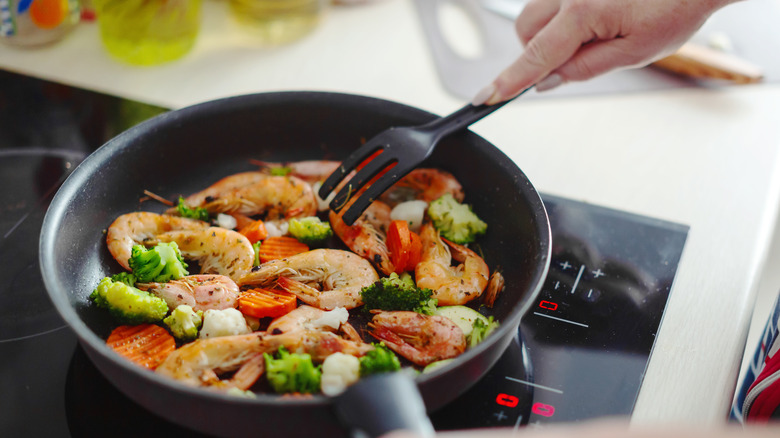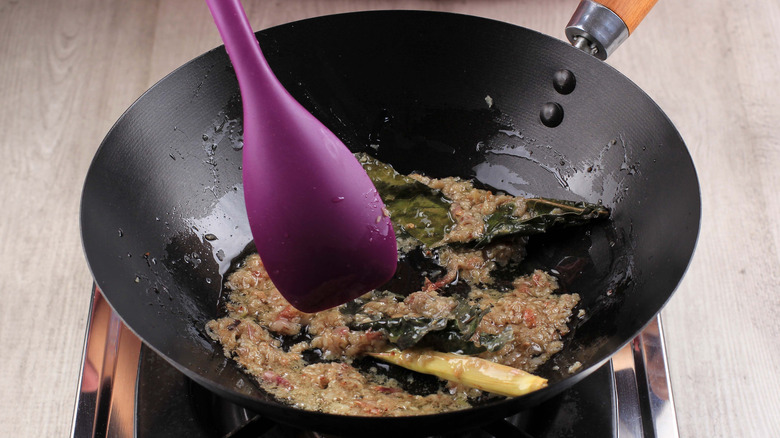Are Plastic Utensils Bad For You?
Having the right tool on hand to slowly stir a soup or scrambled eggs is essential for cooking. But functionality aside, health experts bring up an important consideration when choosing your cooking utensils — the safety of using plastics while cooking. When it comes to hot foods, plastic utensils like spatulas, whisks, and spoons can leach harmful chemicals into your food, especially at temperatures over 158 F (via Women's Health).
When plastic cooking tools are manufactured, toxic chemical byproducts called oligomers form. When you cook with these utensils, you may be inadvertently ingesting these oligomers along with your food. When ingested in significant amounts, these toxins have been linked to health problems like liver and thyroid disease, cancer, infertility, and high cholesterol, according to Women's Health. Scientists found that ingesting as little as 90 micrograms of these plastic-derived chemicals could pose a danger, and by using these tools to cook multiple times per day, one increases their risk of exposure. According to experts, being aware of certain toxins and where they exist can help you reduce your exposure and the negative health impacts.
Reducing exposure to BPA and phthalates
Unfortunately, there are other toxic chemicals to be aware of. Bisphenol A (BPA) and phthalates are two other toxic chemicals commonly found in plastic kitchenware and pose ongoing concerns among health experts, according to WebMD. To further complicate matters, as manufacturers phase out these chemicals to comply with consumer demand for BPA-free and phthalate-free plastics, they replace them with other chemicals that have similarly harmful health effects.
"Phthalates, PFAS and bisphenols are getting into the food because they are in material that contacts food," Ami Zota, associate professor of environmental and occupational health at The George Washington University in Washington, DC, tells WebMD. "They also are getting into the food because they are now ubiquitous contaminants."
Still, experts suggest there are ways to minimize your exposure, such as opting for fresh foods over packaged and processed ones, avoiding greasy foods wrapped in paper, avoiding foods heated in plastic, and filtering the water you drink.

